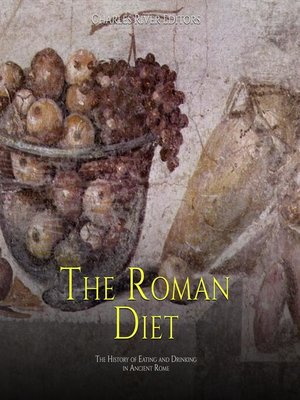The Roman Diet
audiobook (Unabridged) ∣ The History of Eating and Drinking in Ancient Rome
By Charles River Editors

Sign up to save your library
With an OverDrive account, you can save your favorite libraries for at-a-glance information about availability. Find out more about OverDrive accounts.
Find this title in Libby, the library reading app by OverDrive.



Search for a digital library with this title
Title found at these libraries:
| Loading... |
Indulgence is at the heart of modern perceptions of eating and drinking for the ancient Romans. The majority of primary sources depicting food and drink that have survived show rich patricians reclining at a table loaded with exotic foods, and Roman diners are often depicted as gorging themselves over numerous courses served over many hours. Of course, the history of eating and drinking for the wider population within the more than 1,000-year span of the empire was somewhat different. These feasts depicted in the images of Roman dining were relevant to only the very elite and ignore the fact that Roman society was rigidly hierarchical. What the richest ate was markedly different from the fare on offer to their slaves, and between these two extremes, there were numerous socioeconomic groups whose eating and drinking habits varied enormously. Moreover, since the Roman Empire encompassed much of Europe and the Middle East, the different kinds of food and drinks available in Rome were vast.
While there are several sources of evidence to help determine what Romans ate and drank, tangible evidence of the Romans' diets can be found in one particular source: human waste. The cities of Herculaneum and Pompeii, in particular, have left intact sewers and rubbish heaps packed with digested food that scientists and archaeologists have been able to analyze, and which have revealed details of what the ordinary Romans consumed.
Literature and art also provide some information. For example, Petronius' Satyricon is probably the inspiration for the modern concept of the decadent Roman banquet, while the poets Horace and Juvenal included detailed information in their Satires. Perhaps the most significant written source is a large cookbook, Apicius's De re coquinaria, which was written in the 4th century CE. Pliny the Elder's Natural History is also a valuable source on the edible plants used in Roman cooking.






